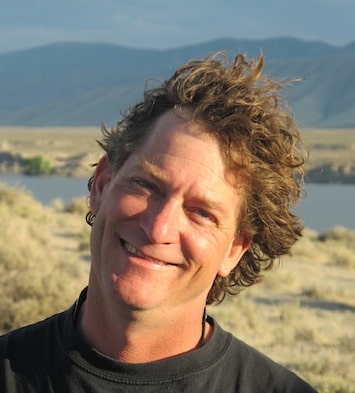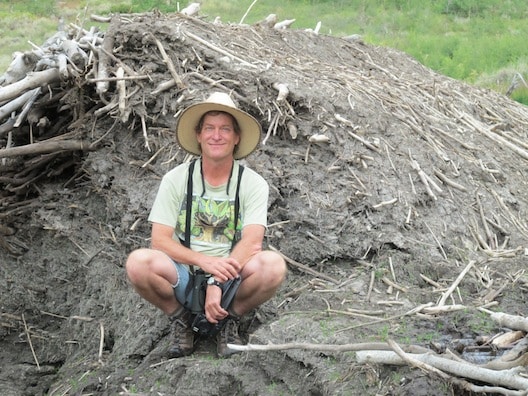Brock Dolman
Co-Founder; Program Director
Brock Dolman (He/Him) co-directs the WATER Institute, Permaculture Design Program and Wildlands Program. He has taught Permaculture and consulted on regenerative project design and implementation internationally in Costa Rica, Ecuador, U.S. Virgin Islands, Spain, Brazil, China, Canada, Zimbabwe, Tanzania, Democratic Republic of Congo, Cuba and widely in the U.S. He has been the keynote presenter at numerous conferences and was featured in the award-winning films The 11th Hour by Leonardo DiCaprio, The Call of Life by Species Alliance, and Permaculture: A Quiet Revolution by Vanessa Shultz. In October of 2012, he gave a City 2.0 TEDx talk. Brock completed his BA in the Biology and Environmental Studies departments at the University of California Santa Cruz in 1992, graduating with honors. For over a decade, he has served as an appointed commissioner on the Sonoma County Fish & Wildlife Commission.
On Staff Since: 1994 Email > Phone: x106

In Their Own Words
My work at OAEC:
My work at OAEC has primarily been the educational integration and pragmatic actualization of eco-logical literacy at OAEC. From our keystone courses in School Gardens and Permaculture Design to watershed restoration and Traditional Ecological Knowledge-inspired applications, my work here has been to be a bridge between thinking and doing. While offering innovative ways to think about more progressive settlement systems, I have been simultaneously committed to facilitating the hands-on, physical work of constructing many demonstration projects on site—so that OAEC can collectively use statements such as: we live it, we teach it, we think it, we do it!
My passions:
My passion is for strategically supporting communities with adaptation strategies for a dynamically changing Planet, by providing ample opportunities to meet the demands upon us to bring forth a Reverential Rehydration Revolution—one that will necessarily engage all Life Cycles on Planet Water in activating more Life-Literate human settlement patterns. Pragmatically, the quickly changing conditions we face will require us to proactively implement solutions-oriented concepts like “Conservation Hydrology” land use practices and “Basins of Relations” social organizing as strategies for restoring communities through participatory regeneration of watersheds for Pro-Biotic resiliency that will make the ancestors proud and the great-grandkids grateful!
My background:
I was raised in a military family from Idaho that moved many times, and I have never returned to live in the same place twice—thus not really “from” anywhere. This was perfect training for becoming a restoration ecologist familiar with numerous ecosystems and social settings globally, as I have lived outside of the U.S. for a total of over 5 years—from Japan to Europe to Latin America.
Why my work matters:
It appears to me that the greatest affliction we face is that of Eco-logical Illiteracy, directly reflected by the myriad “anti-biotic” behaviors of modern civilization that are driving the current 6th mass planetary extinction wave. Supporting a full-scale change in societal norms and behaviors that moves us towards acting within life-affirming accord is of paramount importance at this critical time. My work matters because it supports resilient retrofits of human settlement at all scales, in ways based more on “composing with” through ecological emulation of how nature works rather than “imposing upon” nature with our ill-informed and degenerative desires. My work, being fundamentally based on my worldview as a biologist (“one who studies life”), is to honor the fact that we live on the only known place in the universe where Life is Endemic.
My favorite resiliency resource:
I think that the Permaculture Designers Manual, coupled with the perspective of the book Tending the Wild, offer us visions and ways of re-thinking our relationship with each other and our global home and show direct ideas for how, in integrated ways, we can design and develop resilient behaviors.







